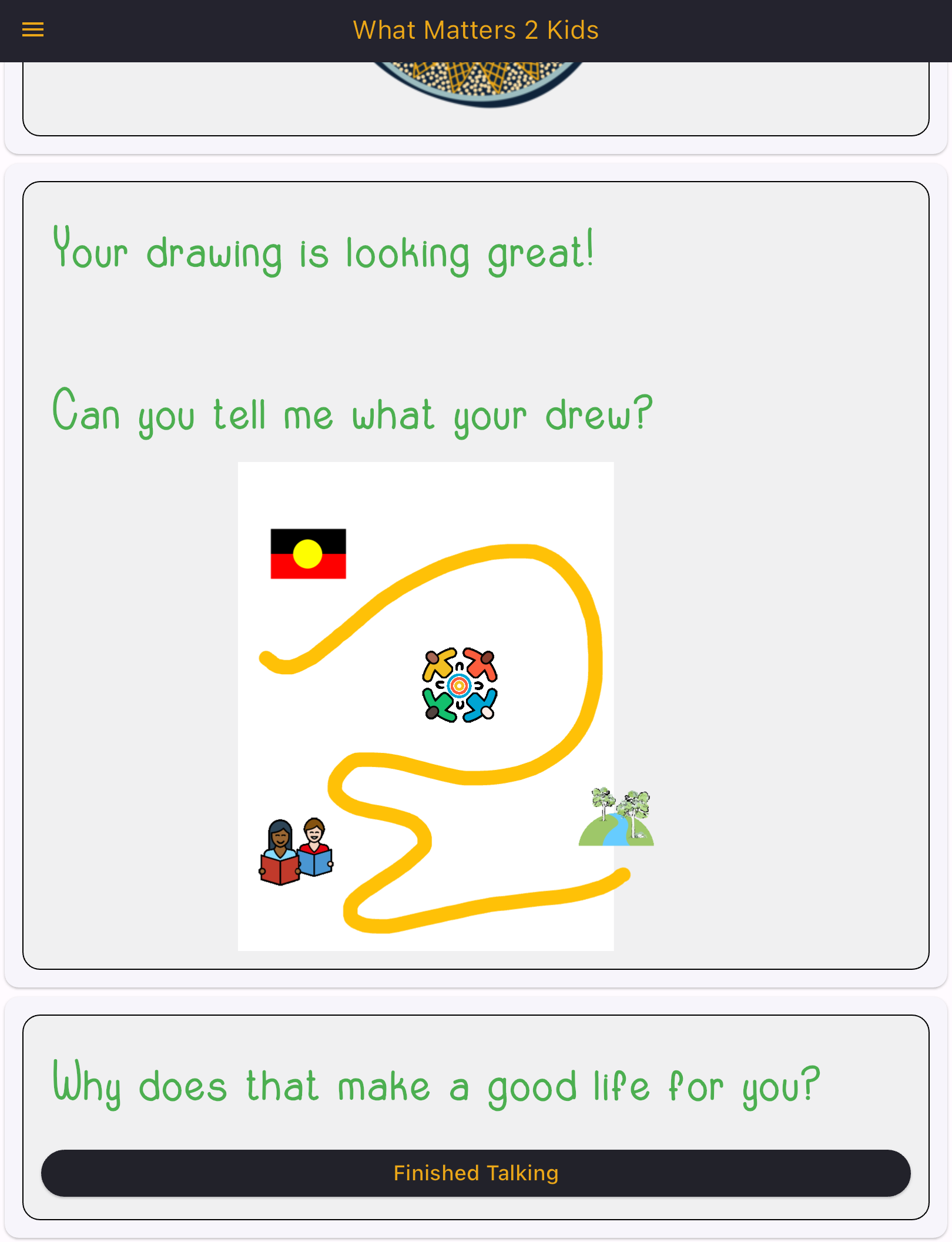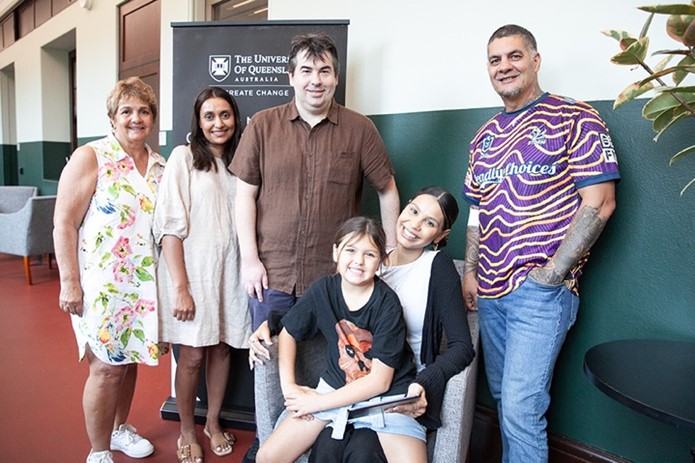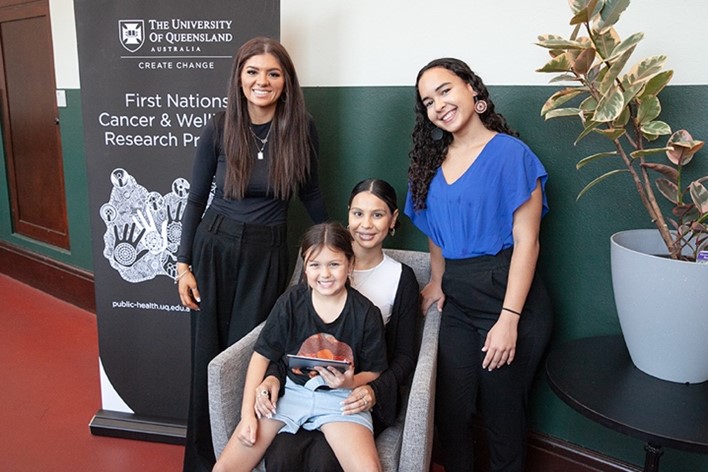Art, technology, and the wellbeing of First Nations children
A University of Queensland and CSIRO collaboration has captured First Nations children’s views about their wellbeing by combining art and technology into a new app.
The results will guide the development of a nationally relevant wellbeing measure for Aboriginal and Torres Strait Islander children aged 5-11 years.

Using culturally grounded methods, UQ’s What Matters 2 Kids (WM2K) project is hosting art and Yarning sessions with First Nations children across Australia to identify what supports children’s wellbeing.
The WM2K app mimics these art and Yarning sessions by inviting the child to draw on a tablet and then asking them to describe their art and its importance to them.
Lead Investigator Dr Kate Anderson said the WM2K project had integrated culture, innovation, and technology, which was key in designing measures with community.
“Many children feel comfortable engaging with the project’s First Nations facilitators, however we wanted to offer an alternative way to participate in the study for children who feel shy engaging with strangers.
“These children are more likely to enjoy self-navigating the art and storytelling using an app at their own pace, with support on hand if needed.”
Rather than settling for an AI generated voice, Dr Anderson’s research team recorded the spirited young voice of First Nations child, Stevie Fagan, to engage with users as the app captured their data.

“Stevie’s voice has made all the difference,” Dr Anderson said.
“This app will allow First Nations children to participate in research about their own health and wellbeing in a fun and familiar way, and the rich data we are able to collect will enhance the research project.”
This is the first time eight-year-old Stevie Fagan has put her voice to anything – but perhaps not the last.
“I would like to do a voice-over again because I want to be famous,” Stevie said.
“I want to be on Bluey. Maybe I’d be a Koala.”
Senior Research Scientist Dr David Ireland from CSIRO first developed the technology to help children with chronic pain and is excited to see the same technology in a new application to measure the wellbeing of First Nations children.
"This project is a great example of how through collaboration we can develop novel applications for our digital technology that has potential to make a really positive change in the lives of Australians,” Dr Ireland said.

"I really enjoyed developing the What Matters 2 Kids app with the UQ team.
“While we have plans for improving the app with AI, what actually brings it to life is the wonderful icons by artist Craig Carson and voice artist Stevie."
The culturally appropriate icons in the app were designed by Craig Carson to help form a connection with First Nations children as they navigate the WM2K app.
Mr Carson is a proud Wakka Wakka man working as Senior Community Engagement Officer and resident artist at the First Nations Cancer & Wellbeing Research program (FNCWR).
The What Matters 2 Kids (WM2K) project aims to develop a nationally relevant, strengths-based wellbeing measure for First Nations Australian children aged 5-11 years to inform clinical and policy decision-making.
The project commenced in January 2023 and is a 5-year project fully-funded by an NHMRC Ideas Grant. The WM2K app is now being used by facilitators to collect data on site visits.
Dr Kate Anderson is also a Senior Research Fellow in the FNCWR at UQ’s Faculty of Medicine.
Media contacts
UQ Faculty of Medicine, med.media@uq.edu.au, +61 436 368 746; First Nations Cancer & Wellbeing Research program, Amanda Donigi, a.donigi@uq.edu.au.
